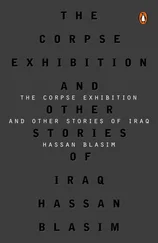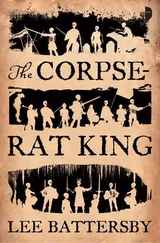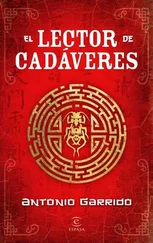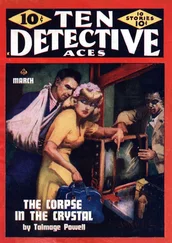

To my wife, Maite. She is all my happiness.

PROLOGUE
1206, Tsong dynasty. Eastern China.
Fujian Circuit.
Jianyang Subprefecture farmlands.
Shang didn’t know death was coming for him until he tasted the blood spurting up into his throat. He covered the wound with his hands to try to stem the bleeding. He tried to speak, too, but before he could make a sound, his eyes opened wide and his legs crumpled beneath him like a worn-out marionette’s. If he could have uttered the words, he would have spoken his killer’s name, but the blood in his throat, along with the cloth the killer had stuffed into his mouth, prevented him.
On his knees in the mud, before breathing his last breath, Shang felt the warm rain on his skin and smelled the wet earth beneath him. Both had been with him his whole life. Then, soaked in blood, Shang’s body collapsed into the mire, and his soul drifted away.

PART ONE

1
Cí got up early that morning to avoid running into his brother Lu. He could barely pry his eyes open, but he knew that, like every morning, the paddy field would be awake and waiting.
He got up and began putting away his bedding, smelling the tea his mother was brewing in the main room. He entered the room and greeted her with a nod. She replied with a half-hidden smile that he noticed nonetheless, and he smiled in return.
He adored his mother almost as much as he did his little sister, whose name was Third. His other sisters, First and Second, had died very young from a genetic disease. Third was the only one who had managed to survive, though she remained sickly.
Before breakfast, he went over to the small altar the family had erected in memory of his grandfather. He opened the wooden shutters and inhaled deeply. Outside, the first rays of sun were filtering delicately through the fog. The breeze moved through the chrysanthemums in the offering jar and stirred the spirals of incense rising in the room. Cí closed his eyes to recite a prayer, but the only thought that came into his mind was this: Heavenly spirits, allow us to return to Lin’an .
He cast his mind back to when his grandparents were still alive. This backwater had been paradise to him then, and to his brother Lu, who was four years his elder, his hero. Any child would have worshipped Lu. Lu was like the great soldier in their father’s stories, always coming to Cí’s rescue when other children tried to steal his fruit rations, always there to deal with shameless men who tried to flirt with his sisters. Lu had even shown him how to win a fight using certain kicks and punches. He’d taken him down to the river to splash around among the boats and to fish for carp and trout, which they’d then carry home in jubilation. He had also shown Cí the best hiding places from which to spy on their neighbors.
As Lu got older, though, he became vain. At fifteen, he was stronger than ever, as well as boastful, and was unimpressed with anything other than a good right hook. Lu began organizing cat hunts so he could show off in front of the girls. He’d get drunk on stolen rice liquor and crow about how he was the strongest in the gang. He became so arrogant that even when girls were making fun of him he thought they just wanted his attention. Eventually, all the girls began avoiding Lu, and Cí gradually became indifferent to his former idol, too.
In spite of everything, Lu had generally managed to steer clear of any serious trouble, apart from the occasional black eye from fighting or from riding the community buffalo in the water races. But when their father announced his intention to move to the capital city of Lin’an, Lu, who was sixteen at the time, refused to go. Lu didn’t want to move to any city; he was happy in the countryside. In his eyes, the small village had everything: the paddy field, his braggart group of friends, even a few local prostitutes for his amusement. Although his father threatened to disown him, Lu refused to back down. So that year the family split up: Lu stayed in the village and the rest of them moved to the capital, in search of a better future.
Cí had found it difficult adjusting to Lin’an life, though he had a routine. He was up every morning with the sun to check on his sister. He’d make her breakfast and look after her until their mother came back from the market. Having wolfed down his bowl of rice, he’d go to classes until midday, and after that he would run all the way to the slaughterhouse to help his father in his job clearing away carcasses. In the evening, after cleaning the kitchen and praying to his ancestors, he studied the Confucian treatises for recitation in class the next morning. Month after month this was his life. But one day, everything changed. His father left the slaughterhouse and got a job as an accountant for the prefecture of Lin’an under Judge Feng, one of the wisest magistrates in the capital.
Life improved rapidly. The salary his father was now earning meant that Cí, too, could give up the slaughterhouse and dedicate himself to his studies. Thanks to excellent grades, after four years in school Cí was given a junior position in Judge Feng’s department. To begin with, he was given straightforward administrative tasks, but his dedication and attention to detail set him apart, and the judge himself decided to take the now seventeen-year-old under his wing.
Cí showed himself worthy of Judge Feng’s confidence. After just a few months he began assisting in taking statements, interviewing suspects, and preparing and cleaning the corpses of anybody who died under suspicious circumstances. It wasn’t long before his meticulousness, combined with his obvious talents, made him a key employee, and the judge gave him more responsibility. Cí ended up helping with criminal investigations and legal disputes, and thus learned both the fundamentals of law and the basics of anatomy.
Cí also attended university part time, and in his second year Judge Feng encouraged him to take a preparatory course in medicine. According to the judge, the clues to a great many crimes lay hidden in wounds. To solve them you had to develop not a magistrate’s but rather a surgeon’s understanding of trauma.
Everything was going well until, one night, Cí’s grandfather suddenly fell ill and died. After the funeral, as was dictated by Chinese custom, his father was obliged to give up his job as well as the house they had been living in, since the owner, Cí’s grandfather, was dead. Without a home or work, the family had to return to the village, the last thing Cí wanted to do.
They came back to a very different Lu. He had built a house on a plot of land he’d acquired, and he was the boss of a small crew of laborers. When his father came knocking at his door, the first thing Lu did, before he would allow him to cross the threshold, was make him get down on his knees and apologize. He made their father sleep in one of the tiny bedrooms, rather than give up his own, and treated Cí with the same disinterest. Soon after, when Lu realized his younger brother no longer worshipped him and cared only for books, Cí became the target of all Lu’s anger. A man showed his true value out in the fields, Lu maintained. That was where your daily rice came from, not from books, not from studying. In Lu’s eyes, his younger brother was a twenty-year-old good-for-nothing, just one more mouth to feed. Cí’s life became little more than a series of criticisms, and he quickly came to hate the village…
Читать дальше
















